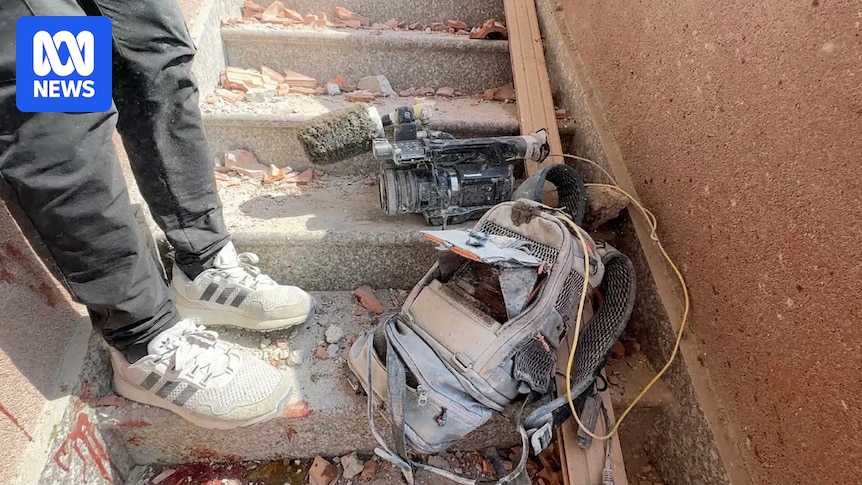
The Israeli military’s investigation into a recent attack on a hospital in southern Gaza has stirred international controversy. The inquiry, which was publicly released, concluded that Israeli troops targeted a news camera they believed was set up by Hamas. However, the report provided no concrete evidence to support this claim. Notably, the investigation failed to acknowledge a second strike at the same location, which resulted in the deaths of emergency workers and journalists.
The report, detailing the Israel Defense Forces’ (IDF) initial inquiry, was released amidst warnings from the United Nations regarding the effectiveness of internal investigations in delivering accountability. On Monday, the dual attacks outside Nasser Hospital in Khan Younis claimed the lives of 20 Palestinians, including five journalists. This incident has sparked global outrage, particularly due to its resemblance to a “double tap” attack—a tactic where an initial strike is followed by a second, targeting first responders.
Details of the Incident
The first strike resulted in the death of journalist Hussam al-Masri, a contract camera operator for Reuters, who was working at the top of the hospital stairwell. The IDF’s statement claimed that the Golani Brigade troops identified a camera allegedly positioned by Hamas to monitor IDF activities. The military cited intelligence reports suggesting that Hamas had been using the hospital for terrorist activities since the start of the conflict.
“It appears that Golani Brigade troops … identified a camera that was positioned by Hamas in the area of the Nasser Hospital that was being used to observe the activity of IDF troops, in order to direct terrorist activities against them,” the IDF statement read.
Despite these assertions, the IDF did not provide evidence to justify the targeting of al-Masri. The military further insisted that six of the individuals killed were terrorists, including one who participated in an infiltration into Israeli territory on October 7th. The IDF Chief of the General Staff expressed regret for any harm caused to civilians.
Ongoing Investigations and International Response
The IDF acknowledged that the broader inquiry into the incident remains incomplete. IDF Chief Eyal Zamir has requested further information on several aspects, including the authorization process for the strike and the decision-making process in the field.
Meanwhile, the United Nations has reiterated its condemnation of the attacks. Thameen Al-Kheetan, spokesperson for the UN High Commissioner for Human Rights, emphasized the need for accountability and justice.
“The killing of journalists in Gaza should shock the world, not into stunned silence, but into action demanding accountability and justice,” Al-Kheetan stated. “Targeting journalists is forbidden, but also targeting hospitals is forbidden.”
Al-Kheetan criticized past investigations by Israeli authorities, stressing the need for tangible results and accountability measures.
Historical Context and Implications
This incident is not isolated in the ongoing conflict between Israel and Hamas, where civilian areas, including medical facilities, have frequently been caught in the crossfire. The use of “double tap” tactics has been condemned by international human rights organizations for its deadly impact on civilians and first responders.
Historically, the Israeli military has faced scrutiny over its operations in Gaza, with numerous calls from the international community for transparent investigations and accountability. The current inquiry’s lack of acknowledgment of the second strike raises concerns about the efficacy of internal military investigations in addressing potential violations of international law.
As the situation develops, the international community continues to watch closely, urging Israel to conduct thorough and transparent investigations. The outcome of the IDF’s broader inquiry will likely influence future diplomatic relations and discussions around military conduct in conflict zones.
The world awaits further developments, hoping for justice and accountability in the wake of these tragic events.






